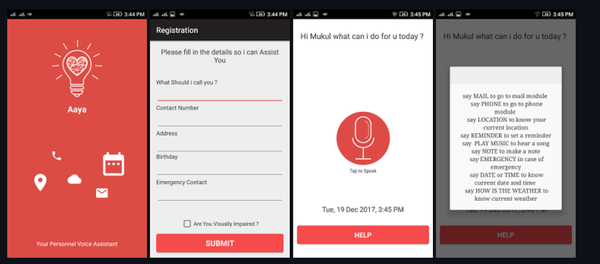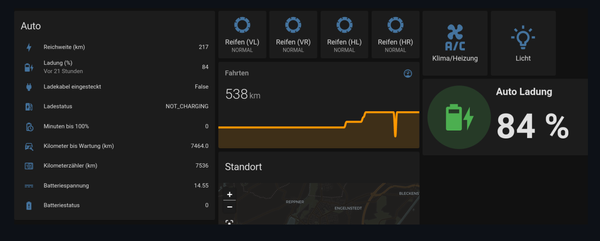How AI Can Be Used in the Fight Against Addiction
Table of Content
Addiction affects millions of people across the globe. From those suffering directly from compulsive behaviour and addictive habits to family members who experience emotional, mentally, and even physical abuse, addiction has an adverse impact across communities.
In addition to the physical, psychological, and emotional effects of addiction, it burdens the economy significantly. From straining healthcare and social services to prevent and tackle diseases, crime, antisocial behaviour, and more, substance addiction can affect every facet of day to day life in the UK.
However, while traditional modes of recovery exist to help people overcome addiction, the emergence of Artificial Intelligence (AI) may help reinforce this. Read on to find out the ways in which AI can help in the fight against substance addiction.
What is Substance Addiction?
Substance addiction, also known as Substance Use Disorder (SUD), is a disease of chronic brain relapsing. While some people dispute the idea of it being a “disease”, neuroscientific models and evidence suggests that addiction alters brain chemistry significantly.
1. Substance Addiction
When someone suffers from addiction, the reward pathways in their brain (responsible for making us experience pleasure and joy through dopamine production) becomes dependent on addictive substances. This is because intoxicating substances such as alcohol, cannabis, heroin, cocaine, and so on, causes a release of dopamine in the brain. The more someone consumes these substances, the more dependent their reward pathways become to not only experience pleasure but also to function.
Substance addiction is very dangerous because it leads to physical and psychological complications. In addition to the higher likelihood of suffering from cancers and diseases, an addicted person will experience mild to severe withdrawal symptoms when they try to abstain. These withdrawal symptoms can manifest in the form of headaches, muscle cramps, nausea, anxiety, or more severe complications such as vomiting, delirium tremors, and seizures that can lead to death.
2. Behavioural Addiction
Behavioural addictions also severely affect the addicted person’s life, whether it is a gambling, gaming, sex or pornography addiction. While the withdrawal symptoms are not as severe as with substance addiction - which has the potential for causing fatality - behavioural addictions can profoundly impact someone’s mental and physical health.
Treatment for Addiction
Addicted people need to undergo a range of stages to ensure optimal recovery. The most important stages of recovery include:
- Diagnosis
- Personalized treatment
- Relapse prevention
However, it can be difficult to successfully execute each of these stages due to a number of factors. Each case of addiction is different, from the substance, behaviour, symptoms, willingness to comply, and more. These different factors also make it difficult to predict whether someone’s recovery plan will be effective, or how likely they are to relapse.
How Artificial Intelligence Can Be Useful in Healthcare
Artificial Intelligence - or AI - has caused a storm across many industries, largely due to how effective it is and how it may replace workers. However, the medical field will always need licensed practitioners, and AI can simply medical professionals and patients to understand their substance or behavioural addiction.
Using AI to Fight Addiction
Here are the ways in which AI tools can help us fight addiction and support a healthy lifestyle:
1. Early Detection and Prevention
AI can use data to analyze patterns and predict the level of risk that someone has towards relapsing or falling into addiction. These forms of data can be collected and combined to determine someone’s level of risk when it comes to falling into addiction.
The factors that we can gather and have AI analyse include but are not limited to:
- Medical records
- Drinking and drug habits
- Fitness score
- Heart rate
- Social life
- Employment
- Sleep quality
For example, if someone drinks frequently, lives a sedentary lifestyle, and suffers from a mental health condition that makes them vulnerable to addiction, AI can use this collected data to tell you just how likely you are to fall into addiction.
Depending on the results of your data, AI can then assign you an addiction risk level, whether it be low risk, moderate risk, or high risk. The result will help you understand the potential for addiction and whether you need to consider adjusting your lifestyle. However, when compiling data, it’s important to provide true evidence and honest answers in order to get an accurate analysis of your threat level.
2. Personalized Treatment Plans
When it comes to seeking treatment, nothing beats professional intervention. You’ll need to seek a licensed medical practitioner who can diagnose your condition and assign you a comprehensive recovery plan for addiction.
However, depending on a range of things, such as your threat level, interests, culture, location, and so on, AI can help personalise your treatment plans. According to your unique personality and characteristics, AI can recommend a range of activities that will not only suit your interests but aid your recovery. Holistic therapy, when combined with therapies such as Cognitive Behavioural Therapy and Support Sessions, can help reinforce your recovery.
3. Monitoring and Relapse Prevention
Much like assessing a patient’s risk level, it can monitor someone’s potential to succumb to a relapse depending on a number of factors. By inputting data and also using wearable devices, such as a FitBit, for example, AI can analyse these factors and determine whether you’re at risk of relapsing:
- Sleep patterns: A worse sleep score means you are more likely to suffer from a relapse. Not only does poor sleep quality indicate that you are in a worse state of health, it indicates that you are suffering from poor habits or stress that may lead to drinking or drug consumption.
- Mood and emotional changes: Irritability, stress, and anxiety can often lead to a relapse, because drugs and alcohol are seen as a form of self-medication for addicted patients. Physical changes in the body such as higher heart rate, raised blood pressure, muscle tension, and more can be indicative of poor mental health, which can present emotional relapse triggers.
- Physical activity Many people in recovery turn towards exercise to cope with addiction. This is because physical activity, whether it be walking, running, weightlifting, martial arts, and so on can improve our moods by producing dopamine naturally. If a recovering person disengages from physical activity for a long period of time, it may suggest that they’re at higher risk of relapsing.
- Social withdrawal: Social withdrawal can lead to isolation, leaving us feeling helpless, unsupported, and lonely. These symptoms are common among people who turn towards drugs and alcohol, because it can mask these feelings of loneliness.
- Skipped therapy or meetings: If you’ve skipped therapy sessions or support sessions, AI can also use this to assess the risk of a relapse. Reduced engagement with support networks and increases your threat of relapsing because you’re not surrounding yourself with others whose lifestyle aligns with yours, and you’ll miss out on benefits such as positive social reinforcement or encouragement.
- Location data: Frequent visits to high-risk areas such as bars, nightclubs, or other locations late at night or even until the early hours of the morning can be indicative of environmental relapse triggers. The more time you spend in high-risk areas, the more likely you are to finally give in to environmental and social relapse triggers.
4. Data Analysis and Research
We can use AI to analyze large datasets for new patterns and trends among drinkers, drug users, and addicted people. Here’s how AI can utilise available information in order to identify trends that helps assess risk levels:
- Natural Language Processing: AI can analyse language on the internet, whether on social media platforms, published studies, news articles, and so on, in order to identify rising trends. These trends can be related to an influx of drugs in a particular location, or identifying common behavioural traits before a relapse, for example.
- Predictive Modeling: Using these statistics, AI can predict whether addiction to a particular substance will become a bigger problem in the future. The emergence or accessibility of a new drug, whether in the black market or through prescriptions, can lead to new forms of dependence, and AI can analyse this data to predict future drug epidemics.
- Real-Time Surveillance: AI can monitor a range of statistics, such as increased traffic for keywords associated with drugs, drug or alcohol-related hospital admissions, overdose reports, and so on, to assess the risk potential of a new trend.
Challenges and Ethical Considerations
There are many things that need to be considered when using AI, ranging from ethical to practical considerations.
- AI will never supplement professional intervention: Ultimately, you will need to see a medical professional or a licensed counsellor if you are suffering from an addiction. While AI is a useful tool to gather a more objective view of your habits and substance consumption levels, only a professional help at a hospital or a drug and alcohol rehab will optimise your addiction recovery.
- Data protection: Many people are concerned with data protection. If this is something that worries you, you may want to reconsider how much information you’re feeding into AI language models.
- Bias: While providing information to AI language models, it’s possible that we downplay our habits and drug or alcohol consumption. One of the most common issues among addicted people is the reluctance to accept that we have a problem, and therefore, AI may be provided information that falsely reassures you that you don’t have a problem.
Using Technology to Assist Addiction Recovery
Addiction remains a complex and deeply personal issue that affects individuals, families, and wider communities on physical, psychological, and economic levels. While traditional treatment pathways such as therapy, home-based alcohol detox, and support groups continue to play a crucial role, the integration of Artificial Intelligence offers a new and powerful layer of support.
AI cannot substitute human empathy or clinical expertise, but it can assist addiction recovery outcomes through early detection, personalized treatment, relapse prevention, and real-time data analysis. By identifying risk factors, behavioural shifts, and societal trends, AI has the potential to help healthcare professionals stay ahead of addiction crises, improve treatment precision, and reduce relapse rates.
As long as ethical considerations like data privacy, algorithmic bias, and human oversight remain central, AI can serve as a valuable ally in our quest for recovery.









